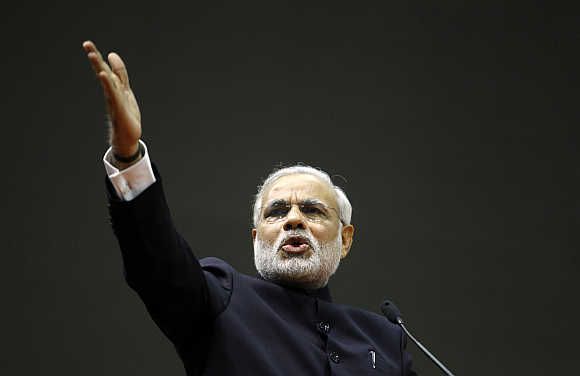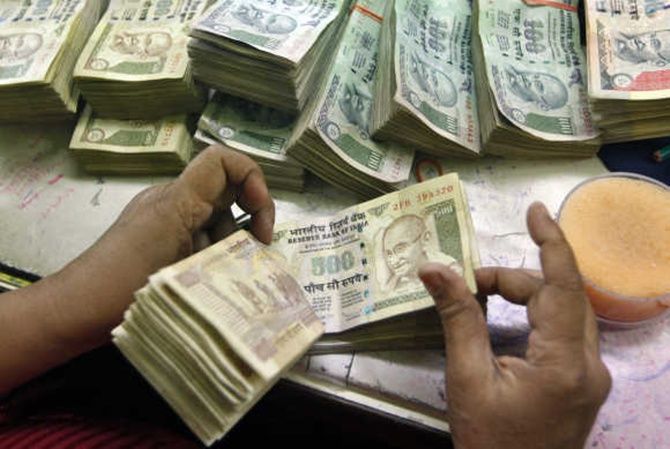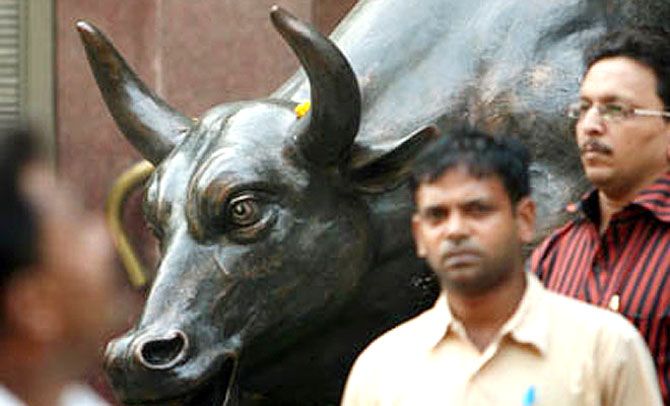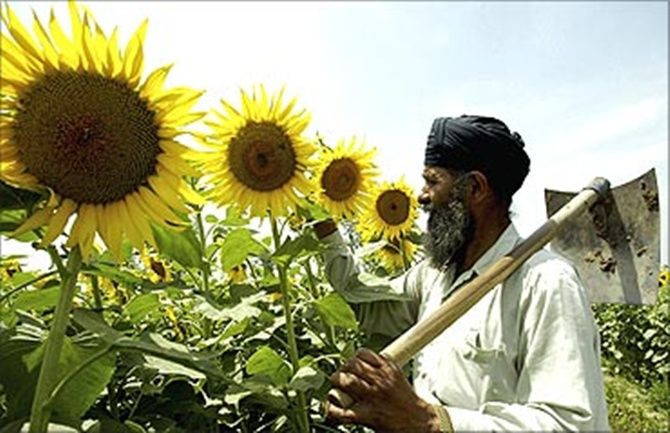
Parliamentary obstruction scuppered Indian Prime Minister Narendra Modi's economic agenda in a month-long session that ended on Tuesday, and the prospect of further deadlock means he will find it hard to deliver quickly on promises of reform.
Lawmakers left without voting on a long-delayed bill to raise the cap on foreign investment in insurance companies to 49 percent from 26 percent, and another that would overhaul the troubled coal sector.

Both bills were considered low-hanging fruit for Modi's government, which came to power six months ago, as they enjoyed rare bipartisan support, but they fell victim to a political impasse over religious conversions.
The government is now contemplating issuing an executive order to implement these measures, which would need to be approved by lawmakers within six weeks of the opening of the next session of parliament, scheduled for the beginning of February.
India's president would also need to agree.

The dispute mainly disrupted proceedings in the upper house, where Modi's Bharatiya Janata Party is in a minority and depends on opposition support.
The lower house, where the BJP enjoys the biggest majority since 1984, continued to function.
 Opposition parties will retain a majority in the upper house at least through 2016, with the clout to hold up other reforms intended to quicken an economic recovery.
Opposition parties will retain a majority in the upper house at least through 2016, with the clout to hold up other reforms intended to quicken an economic recovery.
"The BJP's ascent has left most of these parties extremely jittery," said Sandeep Shastri, professor of political science at Jain University.
"You can expect them to employ similar tactics in the upcoming sessions."
Since Modi's election triumph, the BJP has won an outright majority in three out of four state polls.
If it keeps winning states at that rate, it could control the upper house as early as 2017, because state assemblies elect one-third of the house's lawmakers every two years.
Until then, it may find it hard to push through plans for a common goods and services tax across the country and to make it easier for firms to acquire land.
 Portfolio investors have flocked to India this year on hopes that Modi's victory would bring pro-growth reforms, putting Indian shares among the best performers globally.
Portfolio investors have flocked to India this year on hopes that Modi's victory would bring pro-growth reforms, putting Indian shares among the best performers globally.
But so far, most of his measures have been incremental.
Meanwhile, corporate investment remains stagnant, consumers are glum, and bad loans are rising. Economic growth slowed to 5.3 per cent year-on-year in the quarter to end-September, from a 2-1/2-year high of 5.7 per cent.
Industrial output is down and exports growth is anaemic.
The government is also set to miss its target of nearly $10 billion in privatisations this year by a long way, and with it a plan to trim the fiscal deficit to a seven-year low unless it cuts public spending substantially.











